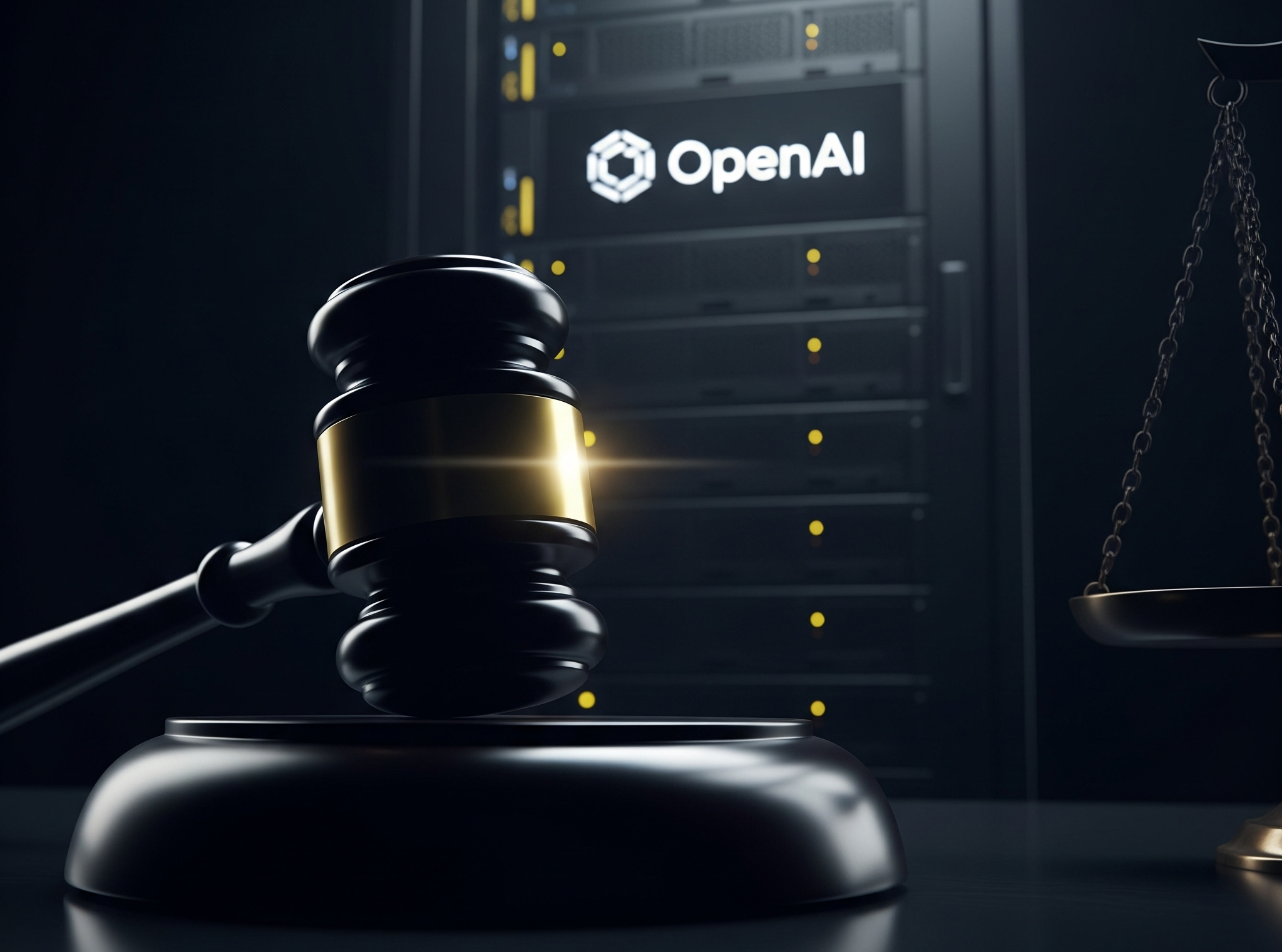The OpenAI Court Order: A Wake-Up Call for Data Privacy in the AI Era

The recent court order forcing OpenAI to preserve all ChatGPT user logs including deleted chats and API conversations, should serve as a stark warning to companies and researchers about the risks of relying on cloud-based AI services for sensitive work. This unprecedented legal precedent reveals just how vulnerable our data can be when we surrender control to third-party AI providers.
The Scope of the Problem
Late Thursday, OpenAI found itself confronting widespread user panic after a federal judge ordered the company to retain all user conversations indefinitely. The order came as part of a copyright lawsuit with The New York Times and other news organizations, who argued that deleted chats might contain evidence of users prompting ChatGPT to generate copyrighted content.
What makes this particularly alarming is the sweeping nature of the order. It affects hundreds of millions of users across ChatGPT Free, Plus, Pro, and API services essentially anyone who doesn't have enterprise-level protections or zero data retention agreements. Users who thought they had control over their data by deleting conversations or using temporary chats suddenly discovered their "deleted" information was being preserved for potential legal scrutiny.
Your Data Isn't Really Yours
This incident exposes a fundamental truth about cloud-based AI services that many users prefer to ignore: when you use these platforms, you're not really in control of your data. OpenAI's own statement admitted they were forced to "abandon long-standing privacy norms" and couldn't even guarantee compliance with EU privacy regulations like GDPR.
The company's FAQ attempts to reassure users that their retained data will be "stored separately in a secure system" and only accessed by "a small, audited OpenAI legal and security team." But this misses the larger point once your data is in someone else's hands, your privacy depends entirely on their policies, their security measures, and their ability to resist legal pressure.
The Training Data Dilemma
Beyond court orders, there's an even more concerning issue: most AI companies explicitly reserve the right to use your conversations for training purposes. While some services offer opt-out options, the default settings often grant these companies broad permissions to analyze, store, and learn from your interactions.
This means that sensitive business strategies, proprietary research, confidential communications, and personal information could potentially be incorporated into future AI models. When your competitor uses the same AI service, they might unknowingly benefit from insights derived from your own data contributions.
Why Local LLMs Are the Answer
The solution is increasingly clear: companies and researchers handling sensitive information need to embrace local large language models (LLMs). Here's why:
Complete Data Control: With local deployment, your conversations never leave your infrastructure. You decide what data to retain, for how long, and who can access it.
No Training Data Concerns: Your proprietary information won't be used to improve models that your competitors might also use.
Legal Protection: Local data is subject to your own data governance policies, not the terms of service of external AI providers.
Regulatory Compliance: Meeting GDPR, HIPAA, or other data protection requirements becomes much simpler when you control the entire data pipeline.
Performance Benefits: Local models can be fine-tuned for your specific use cases without exposing sensitive training data to third parties.
The Cost of Convenience
Cloud-based AI services like ChatGPT offer undeniable convenience and impressive capabilities. But the OpenAI court order demonstrates that this convenience comes with hidden costs. Your data privacy depends on the legal battles, business decisions, and security practices of companies you have no control over.
For casual personal use, these trade-offs might be acceptable. But for businesses handling confidential information, researchers working on sensitive projects, or anyone dealing with personal data, the risks are becoming too significant to ignore.
Making the Transition
The good news is that local LLM deployment is becoming increasingly accessible. Open-source models like Llama, Mistral, and others offer capabilities that rival proprietary services, while tools like Ollama make local deployment straightforward even for smaller organizations.
Yes, there are upfront costs in terms of hardware, setup, and maintenance. But these investments pale in comparison to the potential costs of data breaches, competitive disadvantages, or legal complications that can arise from cloud dependency.
The Broader Implications
The OpenAI case also raises troubling questions about the power dynamics between AI companies and users. If a single judge can order the retention of hundreds of millions of conversations based on speculation about potential copyright infringement, what other legal pressures might these companies face in the future?
Government requests for data access, competitive intelligence gathering, and regulatory compliance requirements could all potentially expose user data in ways we haven't yet imagined. When you don't control your data, you can't protect it from these evolving threats.
Conclusion
The OpenAI court order should serve as a wake-up call for anyone serious about data privacy in the AI era. While cloud-based AI services will continue to play an important role for many use cases, the smart money is increasingly on local deployment for sensitive applications.
The question isn't whether you can afford to invest in local LLM infrastructure it's whether you can afford not to. In a world where your deleted chats might not actually be deleted, and where your proprietary information could inadvertently train your competitors' AI systems, data sovereignty isn't just a technical preference it's a business imperative.
The convenience of cloud AI is compelling, but as millions of ChatGPT users just learned, that convenience can disappear with a single court order. Local LLMs offer something far more valuable: true control over your most sensitive asset your data.
